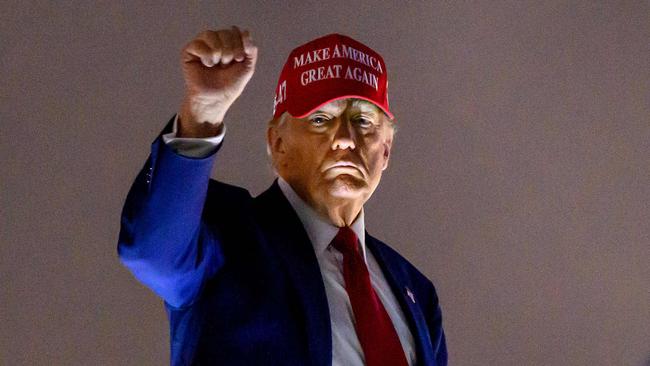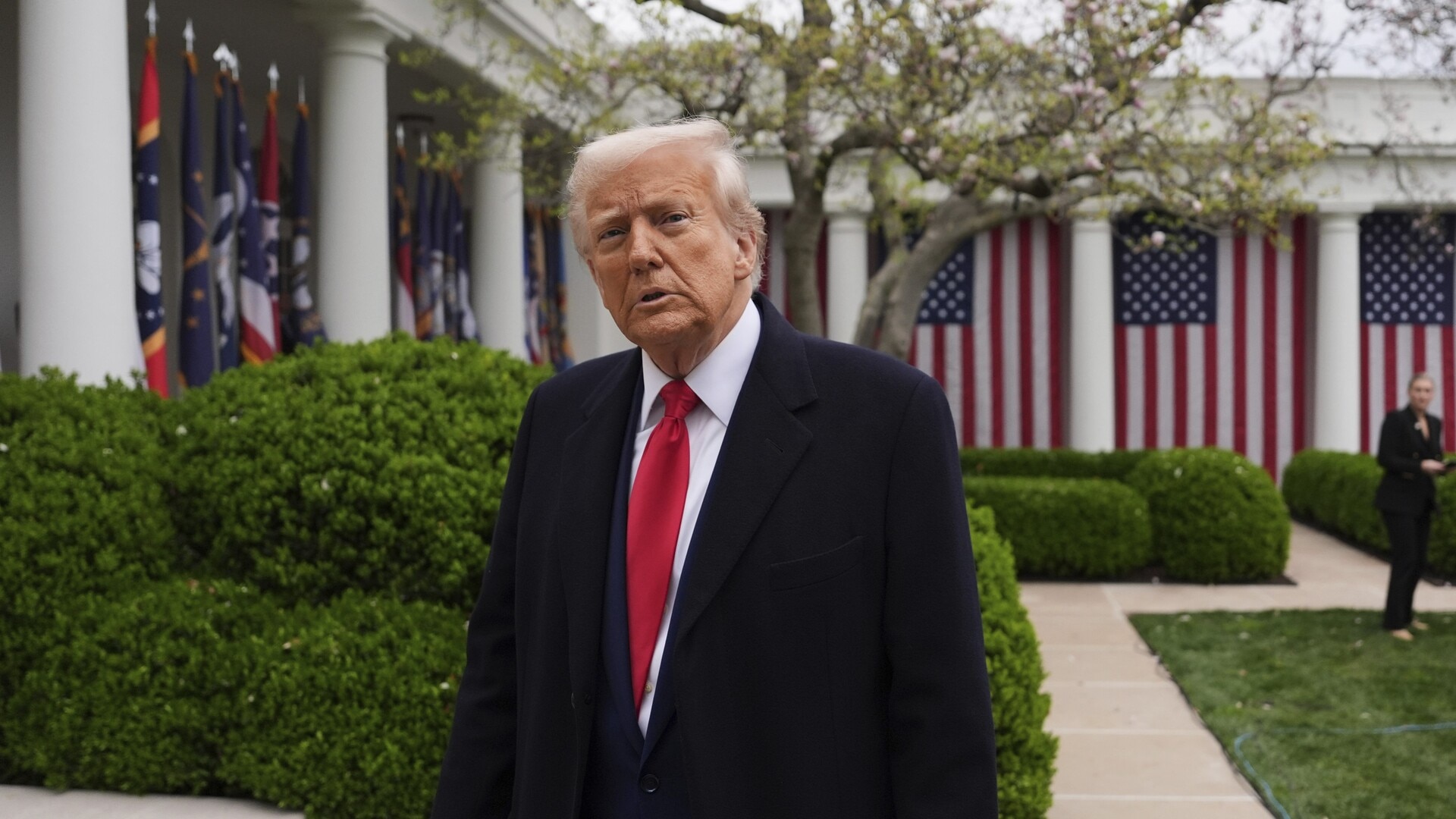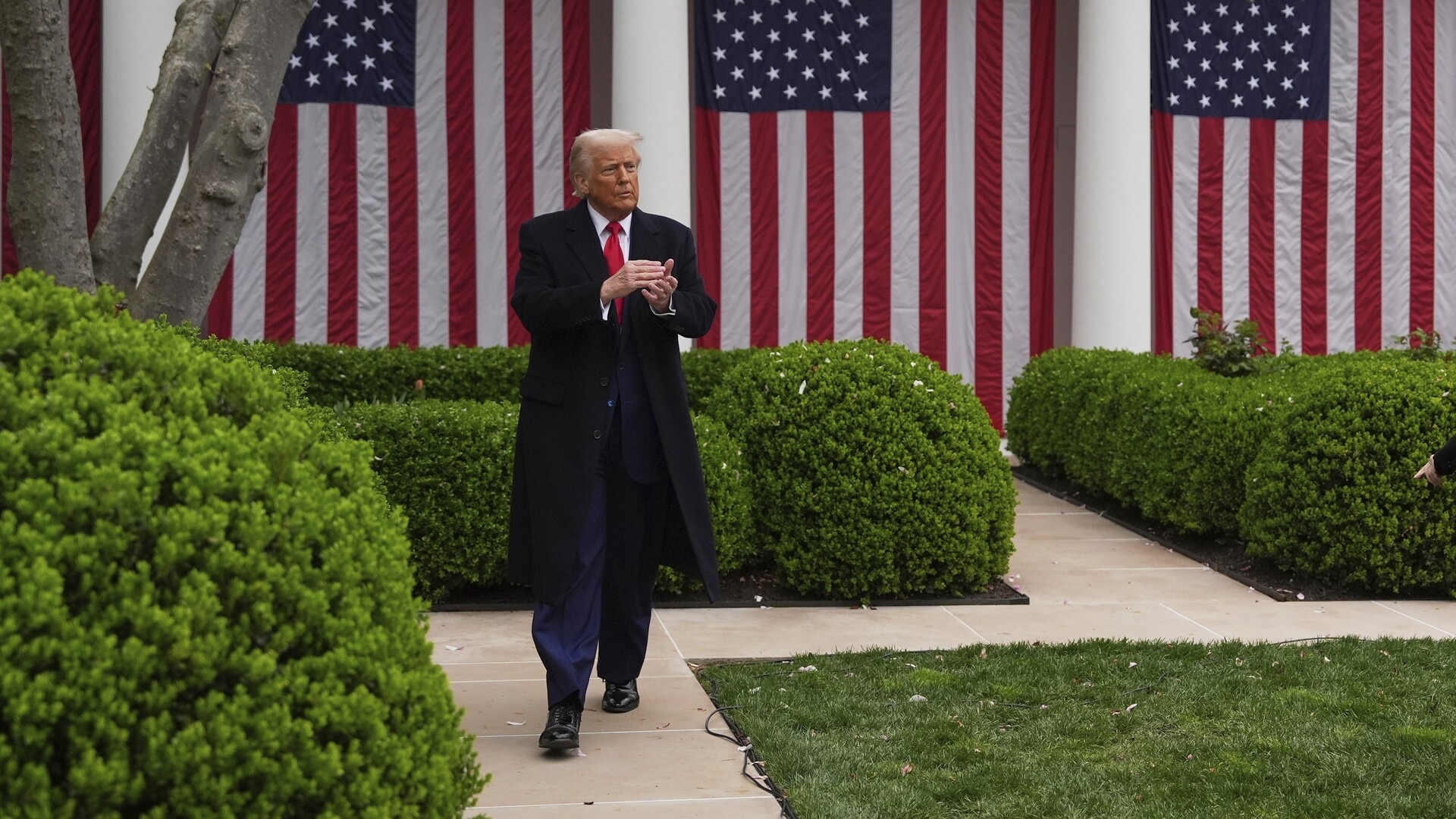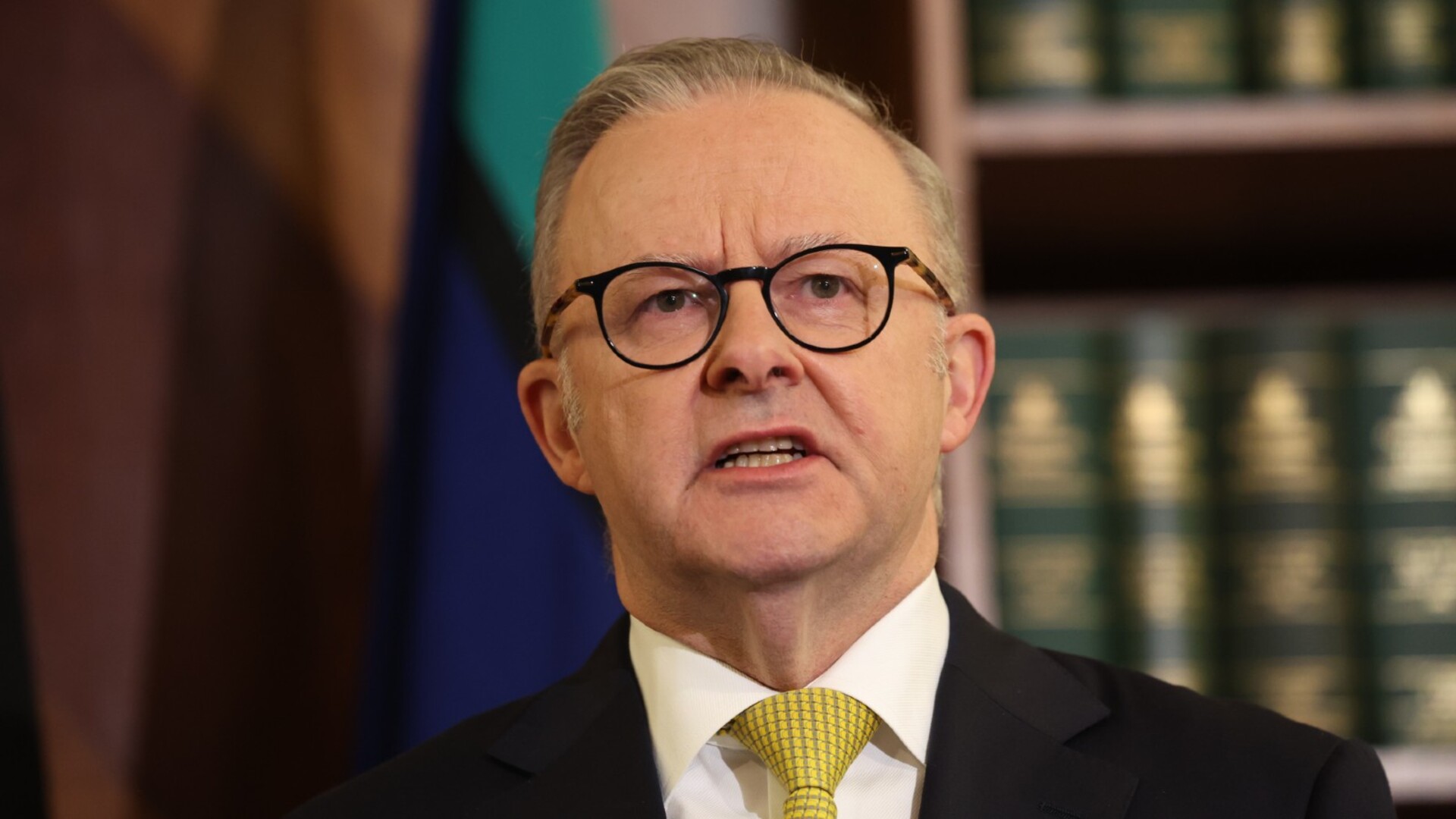Donald Trump says he will expand tariffs as Wall Street slumps
Donald Trump is looking at expanding his reciprocal tariffs despite the largest one-day slump on Wall Street since global Covid lockdowns began in March 2020.

Donald Trump’s tariffs represent the largest tax increase in America for more than 40 years and will raise nearly $300bn in 2025, according to new estimates, with US markets posting their biggest fall since 2020 as nerves grow among Republicans about the economic outlook.
The US President also identified chips and pharmaceuticals as his next key tariff targets after defending his “Liberation Day” shake-up of the global trading system, arguing that it would result in “six or seven trillion dollars coming into our country”.
Speaking on CNN, Commerce Secretary Howard Lutnick said the President was not going to back down from the tariffs unveiled on Wednesday, as fresh questions were raised over the methodology used by the administration to arrive at its reciprocal tariff rates.
“I don’t think there’s any chance that President Trump is going to back off his tariffs,” he said. “This is the reordering of global trade, right? That’s what’s going to happen.”
“The President is not going to back off. He is not backing off.”
Speaking on a flight to Florida on Thursday (Friday AEDT), Mr Trump said the market reaction was expected, with US stocks losing roughly $3.1 trillion in market value in the most brutal one-day decline since the start of the global lockdown in March 2020.
The Dow Jones Industrial Average fell nearly 4 per cent, the S&P 500 dropped 4.8 per cent and the Nasdaq composite tumbled by nearly 6 per cent, with foreign nations including China, Canada, Mexico and France among others threatening to take retaliatory action against the US.
Mr Trump played down the market turbulence as a necessary adjustment, saying “the patient was very sick” and “the economy had a lot of problems”.
“It was a sick patient. It went through an operation,” he said. “It’s going to be a booming economy. It’s going to be amazing. We’re going to have trillions coming in. Now we let it settle in.”

Democratic co-chair of the Congressional Friends of Australia Caucus, Joe Courtney, took aim at the 10 per cent tariffs levied on Australia by Mr Trump as a “slap in the face to a great ally”.
Mr Courtney, who was last year appointed as an honorary officer in the general division of the Order of Australia, declared that the 10 per cent tariff on Australia was an “embarrassment to Americans”. He said Washington was imposing a tariff on Australia that was “equal to Iran”.
After the introduction of the steel and aluminium tariffs in February, Mr Courtney said there was hope that – on April 2 – Mr Trump would “recalibrate his tariffs to prevent collateral damage to trusted allies with trade agreements and top-secret national security ties, such as Australia. Unfortunately, those hopes were dashed”.
“All of President Trump’s tariffs on Australia defy any logic,” he said. “The US has a trade surplus with Australia, and the 2004 bilateral trade agreement eliminated tariffs.”
Vice-president of federal tax policy at the Washington-based Tax Foundation, Erica York, published fresh estimates on Thursday showing the April 2 tariffs represented a $US1.8 trillion tax hike over 10 years, and would shrink US GDP by 0.5 per cent.

Altogether, she said the Trump administration’s tariffs would increase revenues by nearly $US3.2 trillion over 10 years and shrink US GDP by 0.8 per cent – before accounting for any foreign retaliation. Tax Foundation figures suggested the tariffs would raise federal tax revenues in 2025 by $US290.4bn – or nearly 1 per cent of GDP – making them the “largest tax hike since 1982”.
Some Republicans are also concerned about the direction of trade policy under Mr Trump, with many having raised alarms about the April 2 tariffs leading into and after the announcement.
Wisconsin senator Ron Johnson said the President was making a “high-risk bet” on the economy, while John Kennedy from Louisiana said that in the long run, the tariffs would work, but added that “in the long run, we’re all dead – the short run matters too”.

There is also a push in the Senate to introduce legislation giving congress greater control over the imposition of tariffs and trade policy, an initiative co-sponsored by Democratic senator Maria Cantwell and Republican senator Chuck Grassley who are both on the Senate Finance Committee
“I’ve long expressed my view that congress has delegated too much authority on trade to the executive branch under Republican and Democrat presidents,” Senator Grassley said.
Mr Trump indicated he is open to deals on tariffs. “For instance, with TikTok we have a situation with TikTok where China will probably say ‘We’ll approve a deal, but will you do something on the tariffs?’ The tariffs give us great power to negotiate. I’ve used them very well in the first administration … now we’re taking it to a whole new level.”




To join the conversation, please log in. Don't have an account? Register
Join the conversation, you are commenting as Logout